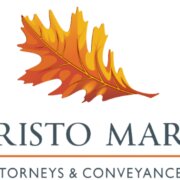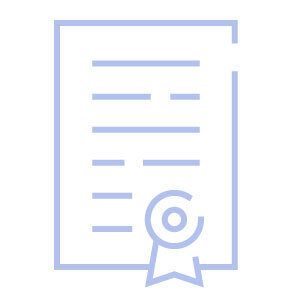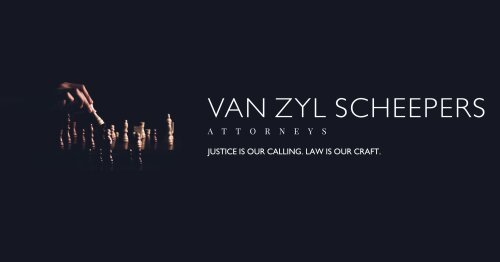Best Sanctions & Export Controls Lawyers in Stellenbosch
Share your needs with us, get contacted by law firms.
Free. Takes 2 min.
List of the best lawyers in Stellenbosch, South Africa
About Sanctions & Export Controls Law in Stellenbosch, South Africa
Sanctions and export controls are legal measures that regulate the trade of goods, services, and technologies to and from South Africa, especially where restrictions are imposed due to international obligations or national interests. Stellenbosch, situated in the Western Cape, is home to businesses engaged in international trade, technology, agriculture, and wine exports. Understanding sanctions and export controls is crucial for local individuals and companies to ensure compliance with both South African laws and international regulations. Non-compliance can result in severe penalties, loss of export privileges, and reputational damage.
Why You May Need a Lawyer
Legal assistance is often essential when dealing with sanctions and export controls due to the complexity and serious consequences of these regulations. Common situations requiring legal help include:
- Exporting goods, technology, or services to countries or entities subject to South African or international sanctions.
- Entering into cross-border contracts that might trigger sanctions or require export permits.
- Facing government investigations, audits, or penalties for potential breaches of export controls or sanctions regulations.
- Acquiring or investing in businesses whose operations involve restricted markets or products.
- Assisting with compliance programs or training to prevent inadvertent violations.
A lawyer can offer expert guidance, review your business processes, help obtain necessary permits, and represent you in administrative or criminal proceedings.
Local Laws Overview
Sanctions and export controls in Stellenbosch are governed primarily by South African national legislation but must also reflect South Africa’s commitments to the United Nations, African Union, and other global bodies. The primary laws and guidelines include:
- National Conventional Arms Control Act (NCACA): Governs the export and import of conventional arms and related items.
- Non-Proliferation of Weapons of Mass Destruction Act: Controls the export of goods and technology that could be used to create WMDs.
- Customs and Excise Act: Regulates the movement of goods across South African borders, including obligations for declarations and duties.
- International Sanctions: South Africa implements United Nations Security Council sanctions through national regulations, impacting travel bans, asset freezes, and arms embargoes.
- Financial Intelligence Centre Act (FICA): Applies to financial institutions and organizations to monitor transactions and prevent dealings with sanctioned persons or entities.
Provincial and local authorities in Stellenbosch do not create separate export control rules but must facilitate compliance with national laws and international commitments. Businesses and individuals in Stellenbosch should remain aware that South African regulations are updated frequently in response to international developments.
Frequently Asked Questions
What are sanctions and export controls?
Sanctions are legal restrictions imposed on countries, organizations, or individuals, often for political or security reasons. Export controls regulate the transfer of goods, technology, or services that could impact national or international security.
Who is responsible for enforcing these laws in Stellenbosch?
Enforcement is carried out by national agencies such as the South African Revenue Service (SARS) for customs, the National Conventional Arms Control Committee (NCACC), and the Department of Trade, Industry and Competition (DTIC).
Do local businesses in Stellenbosch need export permits?
Companies exporting controlled goods, technology, or even certain agricultural products often require permits from the relevant government agencies.
Can I trade with individuals or companies in sanctioned countries?
Trading with sanctioned countries or entities is strictly regulated or prohibited. You must check the latest government lists or consult a legal expert before engaging in such trade.
What types of goods are usually subject to export controls?
Commonly controlled items include arms and defense-related goods, dual-use technologies, pharmaceuticals, chemicals, and certain agricultural products.
What are the penalties for violating sanctions or export controls?
Penalties can include significant fines, imprisonment, forfeiture of goods, revocation of export privileges, and civil liability.
Are there exemptions or exceptions to these controls?
Certain humanitarian exports or technology transfers for research may qualify for exemptions, subject to approval by the relevant authorities.
How do I check if my goods are controlled?
You can use government-published control lists or seek guidance from a lawyer specializing in export controls to determine if your goods require permits.
How often do these regulations change?
Regulations can change rapidly in response to international events. Businesses should monitor official sources regularly or consult legal professionals.
Is it enough to comply with South African law?
Businesses must also consider the laws of the destination country and any applicable international regulations to avoid unintentional violations.
Additional Resources
For more information and assistance with sanctions and export controls, consider contacting or consulting with the following:
- South African Revenue Service (SARS): Customs and excise matters.
- Department of Trade, Industry and Competition (DTIC): Export permits and compliance guidance.
- National Conventional Arms Control Committee (NCACC): Arms exports and licensing.
- Financial Intelligence Centre (FIC): Compliance with financial sanctions.
- South African Institute of International Affairs (SAIIA): Research and updates on international regulations.
- Legal Aid South Africa: Guidance for individuals or small businesses needing legal help.
Next Steps
If you need legal assistance regarding sanctions and export controls in Stellenbosch, consider the following steps:
- Identify the specific product, technology, or transaction requiring advice.
- Gather all contracts, permits, and correspondence related to the matter.
- Consult a lawyer who specializes in international trade law or sanctions and export controls. Stellenbosch-based law firms with expertise in cross-border transactions are ideal.
- Request an initial assessment to understand your compliance obligations and any risks.
- Develop or update your internal compliance programs with professional advice to minimize the risk of violations in future transactions.
Early legal intervention helps prevent costly mistakes, potential penalties, and disruption to your business operations. It also keeps you updated on rapidly changing regulations that may affect your activities.
Lawzana helps you find the best lawyers and law firms in Stellenbosch through a curated and pre-screened list of qualified legal professionals. Our platform offers rankings and detailed profiles of attorneys and law firms, allowing you to compare based on practice areas, including Sanctions & Export Controls, experience, and client feedback.
Each profile includes a description of the firm's areas of practice, client reviews, team members and partners, year of establishment, spoken languages, office locations, contact information, social media presence, and any published articles or resources. Most firms on our platform speak English and are experienced in both local and international legal matters.
Get a quote from top-rated law firms in Stellenbosch, South Africa — quickly, securely, and without unnecessary hassle.
Disclaimer:
The information provided on this page is for general informational purposes only and does not constitute legal advice. While we strive to ensure the accuracy and relevance of the content, legal information may change over time, and interpretations of the law can vary. You should always consult with a qualified legal professional for advice specific to your situation.
We disclaim all liability for actions taken or not taken based on the content of this page. If you believe any information is incorrect or outdated, please contact us, and we will review and update it where appropriate.












